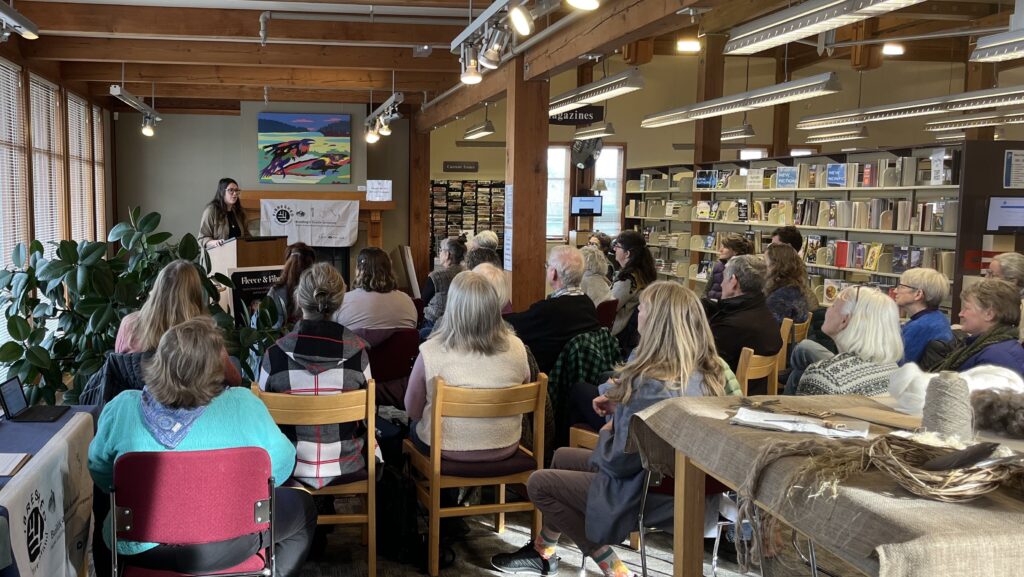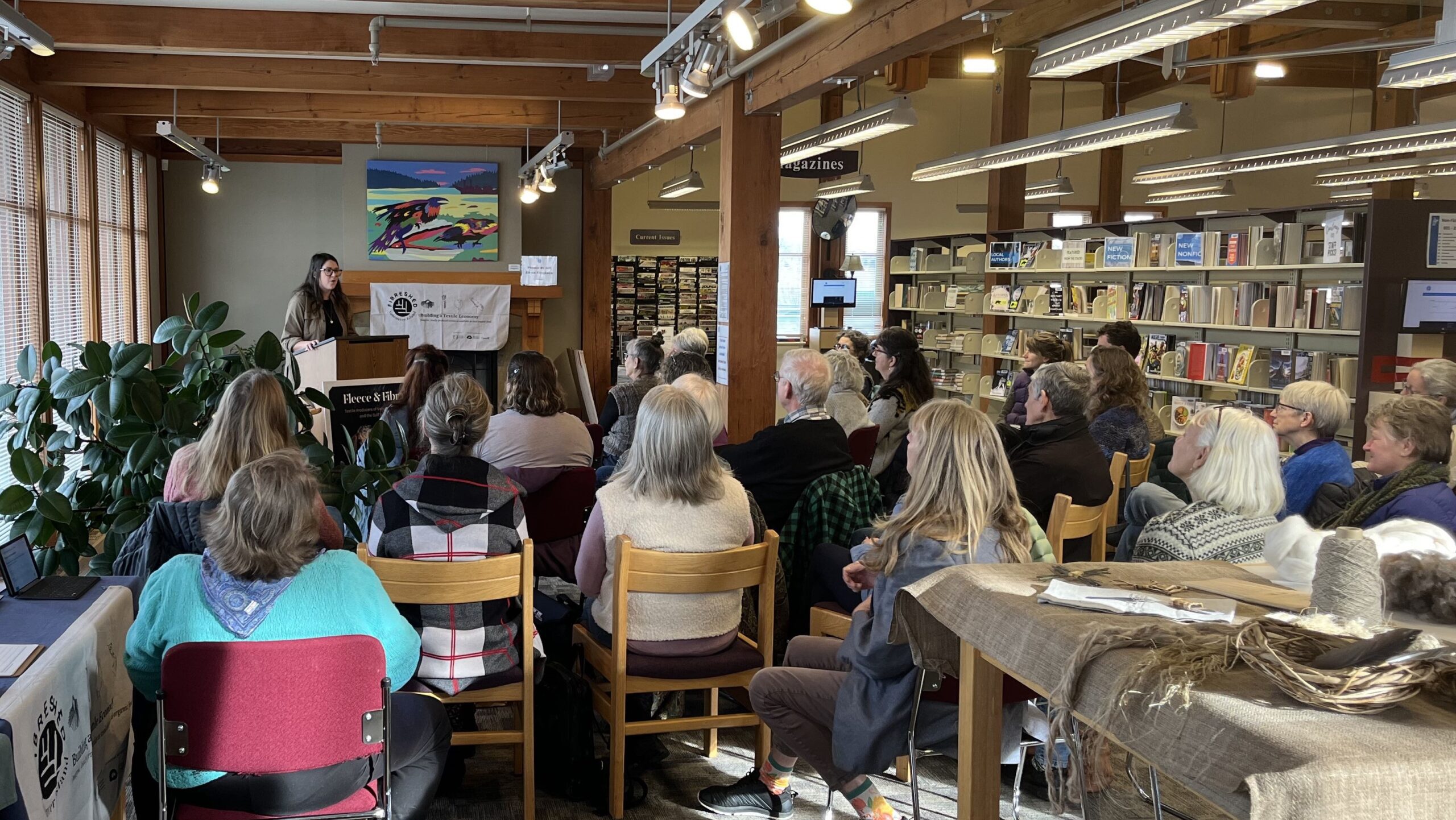
Thank you Francine McCabe for an amazing Fleece and Fibre book talk at the VI Regional Library Courtenay on Sunday, 4 Feb 2024. Over 30 people, including makers, farmers, weavers, spinners, and other fibre-loving people, joined us from across the Comox Valley and visited from as far as Port Alberni and Campbell River. This event provided space for great community connections, education, advocacy and all the good things around local fibre!
After Francine read from her book, we had good discussions about everything from flax and hemp processing to the national wool scene to wool pellets from Vancouver Island Wool Pellets! Thank you, Francine McCabe, for coming up to the Comox Valley to share your book. Thank you, Kris Welk of Francis O Vineyard for sharing details about being a sheep farmer. Thank you, Juliana Bedoya of Plants are Teachers, for bringing a great display of nettle cloth and wool spindles and processing tools for people to try (and for bringing the cookies!). And thank you to Vancouver Island Regional Library – Courtenay, for the space, setting up, and the tea and coffee.
The event was opened by Sarah Thornton on behalf of the Vancouver Island Fibreshed. Her introductory remarks are included below:
We respectfully acknowledge that the land we gather on is on the Unceded Traditional Territory of the K’ómoks First Nation. For thousands of years indigenous people have lived here in this place they refer to as “the land of plenty”. The harvest, preparation and cultivation of local resources were appropriate to the environment, resource, and their spiritual beliefs. We often think about traditional foods. The indigenous peoples also clothed themselves and made all the textiles they needed from materials found here or from nearby trade goods. As the Vancouver Island Fibreshed, I hope that the work we are doing here follows those same principles, of living with the land, and stewarding the resources it offers.
As an organization, we foster connections between people and the textiles they need – for clothing and for more industrial purposes. We link farmers, processors, makers, and consumers in creating a local textile economy based on renewable resources and climate beneficial farming methods.
We see the need for Soil to Soil practices – by using natural materials grown in our environment, when a garment or textile has reached the end of its life, it biodegrades, returning to the soil.
We stand for Fair Labour practices – no person should have to suffer to produce the textiles we use. By bringing our labour home, the manufacture of our clothing becomes more transparent.
Like a water shed or food shed, VIF is a geographical region, encompassing Vancouver Island and the Gulf Islands.
Local farms and forests produce the raw materials, such as cedar, fleece, hemp, flax, hides, and more. Dye materials are grown and foraged here. Raw fibres and materials are processed within VIF into felt, roving, yarns, baskets, and other items for sale. Local makers use the yarns, dye materials, and so on to make finished garments for the retail market (local, online and export) creating a sustainable economic loop.
While we currently lack commercial processing facilities, small scale processing does occur here, and some farmers send their fibres to mills in the Okanagan and Alberta. Our Island fibre festivals are thriving. The VIF Producer Directory, available online, gives local makers a way to find local fibre producers.
When you travel around this valley, you can’t help but notice the sheep in the fields. This climate is good for sheep. We also have a great climate for growing flax, the fibre that is processed into linen, and we have many natural stands of nettles, along with other ‘weeds’ and ‘invasive plants,’ that can be harvested for their fibres. We truly live in the “Land of Plenty” .
With all I have said today, you’ll understand why we are so pleased to welcome Francine here to share her book – a book that celebrates the grounding of our Fibreshed – the farmers raising animals for fibre and the foragers who are working with the fibres the land provides.
Francine McCabe is a mixed-blood Anishinaabe from the Sault Ste Marie region. After completing a broadcasting program in Ontario, she lived in Vancouver and Victoria for a few years, then moved to the Cowichan Valley. She later completed a Creative Writing program at VIU. Fran’s writing has appeared in Portal Magazine, CV Collective, and FOLKLIFE.
Fran is a co-director of the Vancouver Island Fibreshed and a textile artist who works with natural fibres. Her difficulty in sourcing local materials inspired her to reach out to the farmers she saw and eventually led to this book.
Fleece & Fibre: Textile Producers of Vancouver Island and the Gulf Islands explores the world of small-scale textile farms along the Salish Sea and their pivotal role in the sustainable, artisanal textile production and slow fashion movement.
And I’ll let Fran take it from here.

